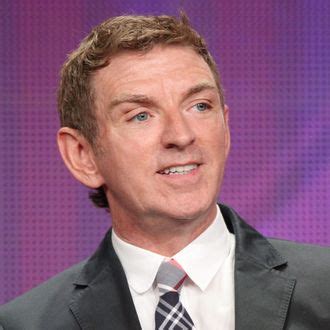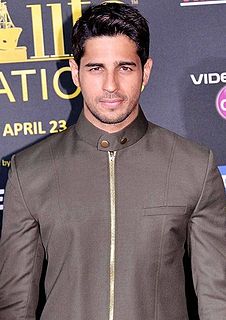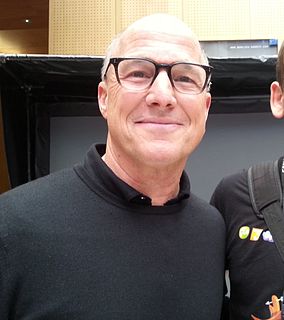A Quote by Michael Patrick King
The first-time director thing is just another label somebody puts on you.
Related Quotes
We made 'Mickey and the Bear' with barely any money with a first-time director, a first-time director of photography, and a crew who had just graduated from NYU film school. We were all very much in this together for the first time. There's no famous actor or big explosions. It's not a Marvel movie. I thought nobody was going to see this film.
I think one third of my work is with first-time directors because I think I should, you know? Really, the difference between a first-time director and a second- or third-time director - I mean there's no director who makes enough movies anyway - but if they're talented, they have it. And there is no movie that is perfect.
Long time ago, people would make the Bible, right? The guy said it, somebody wrote it down. And then if you wanted another copy of it, another human being wrote another one. It took a long, long time. Somebody created this thing called mimeograph paper and so you said, 'OK, we'll do it that way.' And so you could get three of them.
It doesn't matter who's directing, or who's doing the movie; there are a ton of things that can go wrong, and they do all the time. So you just have to figure out how to get through it, and then how the director finally puts it together, and then see what the audience takes from it. That's the most important thing to me.
I've definitely had a bunch of action scripts sent to me, but again I'm a stickler for directors. If it's, like, an action flick with a great director, then it's like, 'Oh let's look at this thing,' but if it's just like a shoot-em'-up with a first time director, I don't know if that's the trajectory I want to take with what I'm doing.
Yeah, I mean I've definitely had a bunch of action scripts sent to me, but again I'm a stickler for directors. If it's like an action flick with a great director then it's like 'Oh let's look at this thing,' but if it's just like a shoot-em'-up with a first time director. I don't know if that's the trajectory I want to take with what I'm doing.
If we have come up with a creative decision and somebody comes up with another idea, you do have to get into the depths of it and ask: "Is it a better idea? Or is it a different idea?" That can be hard. But that's the type of conversation the director and I will have, or as part of our creative groups. So with that in mind, it's hard to keep a budget in line. It's like in life, if you've ever built anything for the first time you're usually better at it the second time.
For us, being a label, we took out the whole aspect of the business that goes into sifting through people who don't care, who don't get what you're trying to do. We can just hire and work with people who get it - the people who understand what this project is about. When you're on a label, you're just hoping somebody will stick their neck out and work for you. Most bands are just like, "I hope they do it. I hope they promote it." But being a label, we know exactly what's happening.




































